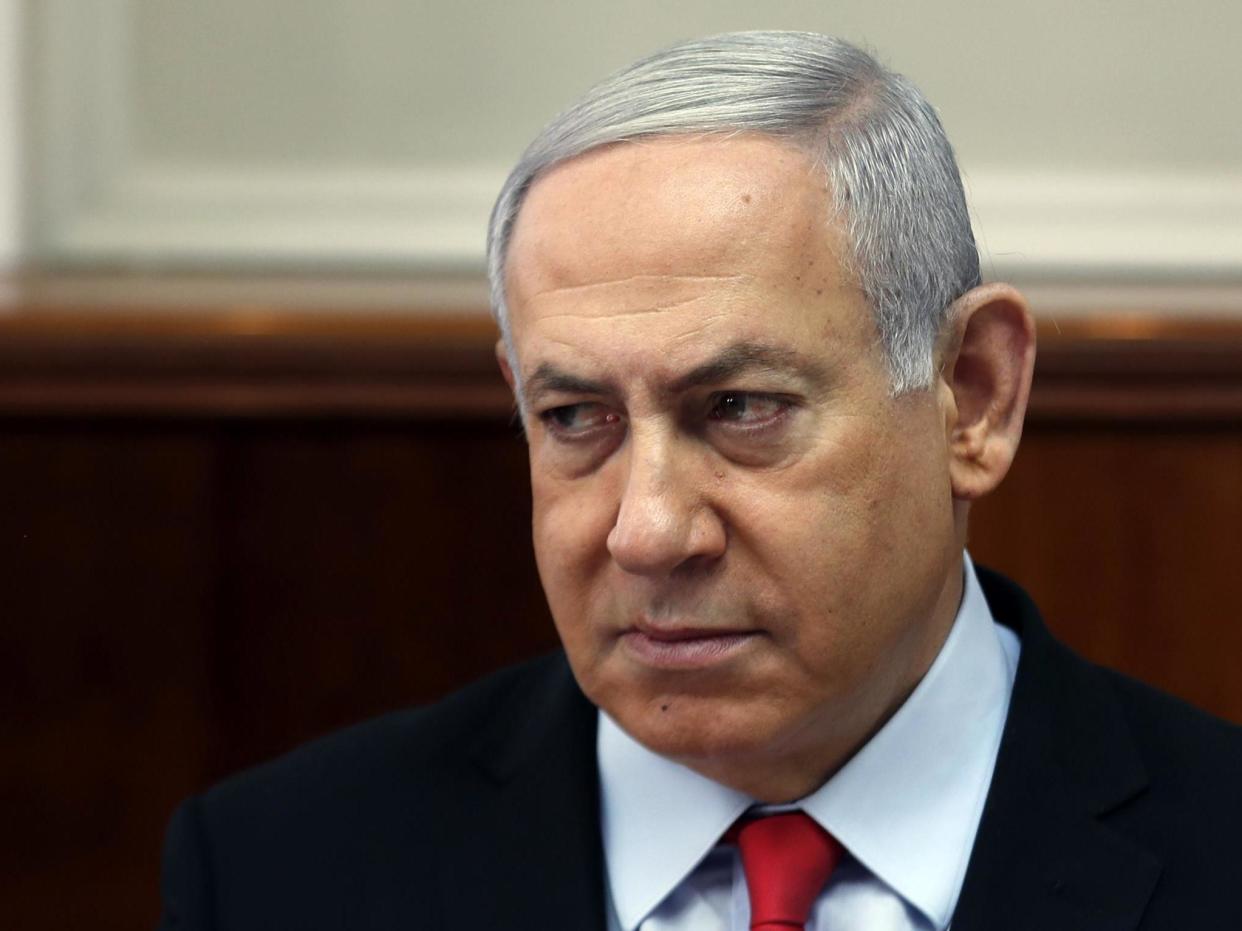Netanyahu charged with bribery by Israel’s attorney general

Benjamin Netanyahu has become the first sitting prime minister of Israel to be indicted, raising further uncertainty over who will lead a country mired in political chaos and heading into its third election in a year.
Attorney general Avichai Mandelblit said in a statement on Thursday that Mr Netanyahu was being charged with bribery, fraud and breach of trust in three corruption cases known as cases 4000, 2000 and 1000.
The prime minister has repeatedly denied all the charges, saying he is the victim of a politically motivated “witch-hunt”. The ruling comes after last month’s four-day hearing with his defence team.
In Case 4000, police have alleged that Mr Netanyahu granted regulatory favours to Israel’s leading telecommunications company, Bezeq, in return for more positive coverage on Walla, a news website belonging to the firm’s owner.
Case 2000 focuses on suspicions that Mr Netanyahu negotiated a deal with leading daily newspaper Yedioth Ahronoth for better coverage in return for promises to limit the circulation of a rival.
Finally, in Case 1000, police argue that he received expensive gifts from wealthy friends including Australian billionaire James Packer and Israeli-born Hollywood mogul Arnon Milchan in exchange for political favours.
Mr Netanyahu can remain in office despite the indictment – there is no legal requirement for him to resign.
However, the possibility of indictment has cast a long shadow over his campaign during the last two inconclusive general elections in April and September, when he twice failed to form a ruling coalition.
Israel is widely expected to head to a third round of elections next Spring after Mr Netanyahu’s chief rival, Benny Gantz, the country’s former army chief, also failed to pull together a government. Mr Netanyahu will be standing trial concurrently – his political opponents have questioned how he can run the country at the same time.
Mr Gantz’s Blue and White party said in a statement that the indictment showed the prime minister “has no public or moral mandate to make fateful decisions for the State of Israel.”
It continued: “There is concern... that Netanyahu will make decisions in his own personal interest and for his political survival, and not in the national interest.”
Israeli analysts said the timing of the indictment “could not be worse for Netanyahu”.
“He just failed, twice, to form a government, and Israel is set to be heading for a third round of elections,” Elizabeth Tsurkov, Fellow at the Foreign Policy Research Institute, told The Independent.
She said Netanyahu will be facing competition not only from other political rivals such as Gantz’s Blue and White centrist alliance but also from within his own Likud party.
“Ahead of general elections, parties with democratic internal structures, the Likud included, generally hold primaries for the list and the leadership of the party,” she added.
This is a huge moment for law enforcement in Israel which is standing up to an (allegedly) corrupt prime minister and media tycoons, but the battle is far from over. Netanyahu will fight tooth and nail for immunity, to delegitimize the law system and of course to remain in power.
— Anshel Pfeffer (@AnshelPfeffer)
“Mr Netanyahu is now trying to prevent the primaries for the leadership of the party, which he has been able to prevent since 2014 by taking over the Likud’s internal democratic institutions.
“Gidon Saar, the prime minister’s only real opponent thus far inside the Likud list, is demanding that primaries for the leadership be held.
“Some resistance remains inside the party, and Netanyahu’s failures to form a government and indictments may finally lead to the emergence of real resistance to his rule of the Likud party.”
Read more
Third Israel election looms as Netanyahu rival Gantz fails to form gov
Netanyahu’s gamble with Gaza may save his career but spark a war
Continuing to worship Netanyahu will not bring us closer to peace

 Yahoo News
Yahoo News 
